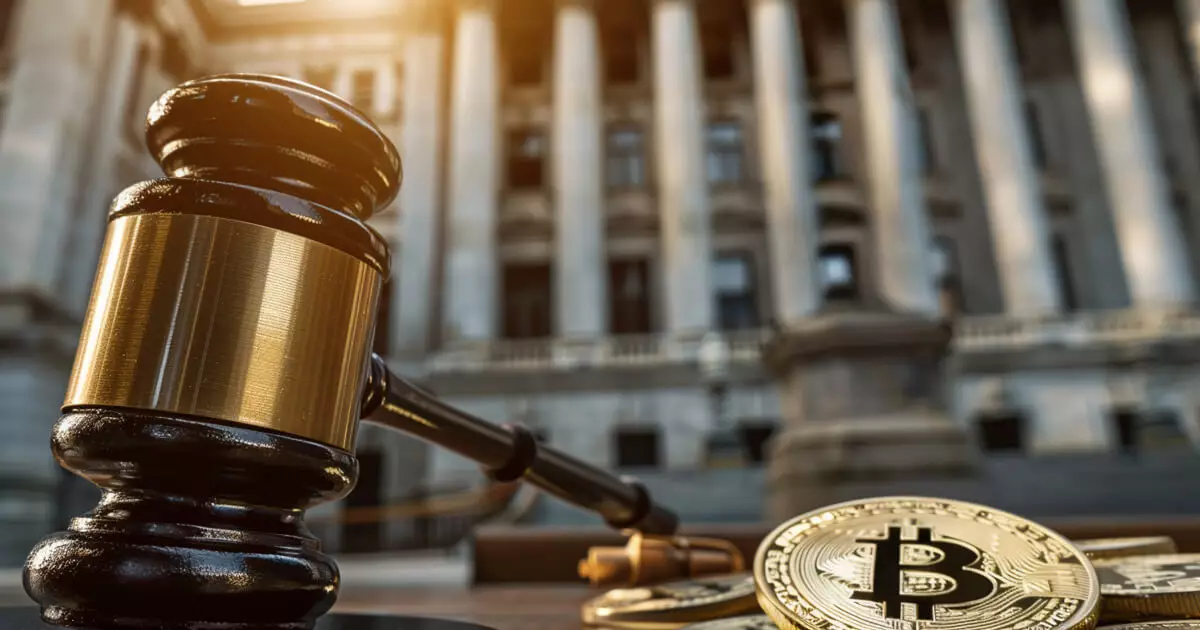In the rapidly evolving landscape of digital currencies, the Satoshi Action Fund is making strides to secure legal protections for Bitcoin self-custody at the state level. This movement draws inspiration from the strategies employed by the cannabis industry, which has successfully navigated federal prohibitions through state-sanctioned initiatives. The crux of this argument is simple yet powerful: in the absence of federal legislation, state law can and should provide the necessary framework for safeguarding individuals’ rights to hold and manage their Bitcoin.
Dennis Porter, co-founder and CEO of the Satoshi Action Fund, advocates that state statutes can act as a bulwark against federal encroachment. His assertion underscores an essential concept in American law—the supremacy clause, which maintains that federal law typically takes precedence over state law. However, Porter argues that federal authorities cannot compel state or local law enforcement to contravene state laws should there be ambiguity at the federal level. The intention is clear: create “safe haven” states for Bitcoin custodians, which would embolden individuals to engage with their digital assets without fear of federal repercussions.
Learning from Historical Precedents
Porter’s approach is not without merit, as he draws parallels to historical movements such as women’s suffrage and civil rights. These social justice efforts often gained momentum within the states before reaching a critical mass that propelled federal action. Porter posits that action at the state level can generate a ripple effect, inspiring similar responses across the nation. His belief is supported by anecdotal evidence that suggests federal law tends to follow successful state legislation when popular support is strong.
Yet, the challenge of this strategy is framed in the cautionary remarks from legal experts who underscore the inherent limitations of state-level initiatives. The assertion that state laws can create effective protections against potential federal opposition risks oversimplifying a complex legal landscape.
Legal Headwinds and Challenges
One such expert, attorney Joe Carlasare, warns that while state measures can offer temporary relief or cover, they remain vulnerable to federal override. He argues that although federal law may not effectively target Bitcoin self-custody—a point he elaborates on by criticizing the cannabis analogy—it remains paramount to recognize that the federal government retains the power to enforce its laws over state legislation. This disparity reiterates the significant hurdles advocates face in establishing an unassailable legal foundation for Bitcoin.
Moreover, Carlasare’s skepticism towards the sensationalism surrounding recent legislative efforts highlights a crucial point: the effectiveness of state movements does not guarantee success or protection in the face of federal authority. His analysis prompts us to recognize that legal bills—even those that seem promising—are not guarantees of protection for Bitcoin users.
In a notable development, Pennsylvania has propelled itself into the forefront of this dialogue by passing House Bill 2481, known as the “Bitcoin Rights” bill. This significant bipartisan legislation aims to empower citizens by affirming their rights to self-custody of digital assets, along with presenting clear parameters for tax obligations linked to digital transactions. With the bill securing a 176-26 vote in the House of Representatives, it now awaits further consideration in the Republican-controlled Senate.
This milestone could very well position Pennsylvania as a leader in establishing a regulatory framework that proactively engages with the burgeoning world of cryptocurrencies. Given the state’s considerable population of crypto owners, the implications of this bill extend beyond local influence, potentially inspiring other states to take similar initiatives in protecting digital asset custodianship.
Despite the challenges posed by federal supremacy, the momentum achieved through state-level actions provides a foundation for hope among Bitcoin advocates. As federal regulatory bodies deliberate on how best to approach digital asset oversight, states like Pennsylvania are carving out niches that allow Bitcoin users to thrive. These developments contribute to a broader conversation on the future of cryptocurrency regulation in the United States, one that hinges not merely on compliance but on fostering a supportive environment for innovation.
Ultimately, the outcome of these state-level initiatives could significantly influence the landscape of Bitcoin regulation nationwide. The ongoing discourse and legislative efforts in Pennsylvania and beyond reflect an emerging recognition of the importance of protecting individual rights in the realm of Bitcoin and digital currencies as a whole.

